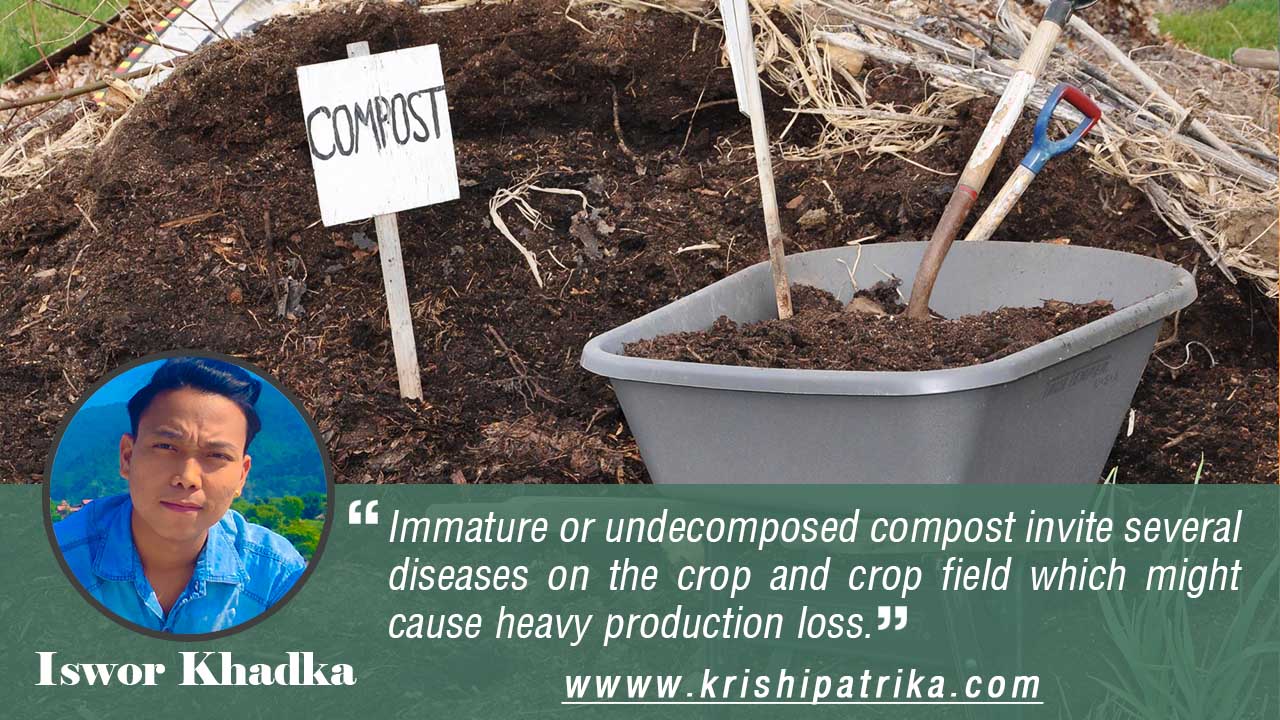
Composting is the process of decomposing the organic material by the successive action of soil microorganisms like bacteria, fungus, earthworms etc into a humus rich soil. For composting all organic material products are used such as wasted food, leaves, grasses, plant trimmings, straw, animal manure etc.
Compost has been considered as a valuable soil amendment. Most of the farmers understand the Importance of compost to increase healthy plant production. Compost provides stable organic matters that nourish physical, chemical, and biological properties of soil. Compost reduces the soil bulk density and improves soil moisture directly by the loosening heavy soils. It increases water holding capacity of soil directly by the binding water to organic matter. It protects soil from soil and water erosion and improves aeration. Compost manure enables soils to hold more plant nutrients and increase cat ion exchange capacity, anion exchange capacity, soil buffering capacity. It builds up nutrients in the soil. It adds organic matter and humus to regenerate poor soils.
Farmers need adequate land area, tools, raw materials etc for the installation of composting system. Composting should take place on an area of well drain. The site may not be located along the surface water of the state. Composting process usually takes long time to produce stable compost product. Due to the fact that requirement of more time taken, availability of raw materials, land area and equipments force to farmers not make compost by themselves. It takes much annual fixed and variable cost. Fixed cost includes the cost of land area of that particular coverage where compost system is going to be established. Similarly variable cost includes the all cost of labors wage. Overall it is less economical and more expensive for farmers.
A successful composting operation ought to have techniques for getting high quality compost without degrading the natural environment. Immature or undecomposed compost invite several diseases on the crop and crop field which might cause heavy production loss. Partial decomposed compost contains thousands of eggs and larva of harmful microorganisms which definitely acts as primary source of inoculums of plant diseases. If not carefully and properly controlled composting system would create environment concerns.
In short, the process of compost making for large scale needs large land coverage along with proper techniques and technicians. Partial decomposition favors the disease infestation which might be so costly to manage. The fear of losing capitals, fuel, labors, time and risk of many diseases most of the Asian farmer prefer to buy compost manure from market rather than making it on their field themselves.









